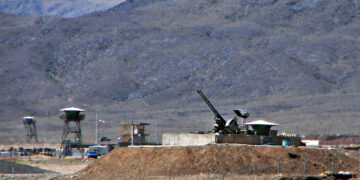Home / Israel-Hamas / By winging it in Gaza, Benjamin Netanyahu is taking a big risk
Israel‑Hamas, Israel, Middle East
August 12, 2025
By winging it in Gaza, Benjamin Netanyahu is taking a big risk

Israeli Prime Minister Benjamin Netanyahu, Israel’s longest-serving premier, is no stranger to making tough decisions. But the decision he made last week to expand Israel’s war against Hamas in Gaza, to the vocal opposition of some of the Israeli military’s most senior officers, was perhaps his most controversial one to date.
After intense debate in the security cabinet, Netanyahu ordered the Israel Defense Forces to accelerate ground operations in the roughly 25% of Gaza outside of Israel’s control. According to the plan, the IDF will move into Gaza City and the camps in central Gaza, push the roughly 1 million Palestinians who reside there farther south and root out the remaining Hamas units operating in the area.
The operation seems straightforward from a military standpoint: get the civilians out, isolate the hardened fighters and kill them. But for many in the IDF, including chief of staff Gen. Eyal Zamir, Netanyahu’s plan runs the risk of plunging Israeli troops into an occupation of the Palestinian enclave that Netanyahu’s predecessors came to regret.
Netanyahu remains defiant. “Given Hamas’ refusal to lay down its arms, Israel has no choice but to finish the job and complete the defeat of Hamas,” he told foreign journalists over the weekend. He has gone to great pains to stress that Israel won’t keep Gaza indefinitely; the goal is simply to free Gaza of Hamas. The problem is that Netanyahu often seems like he’s winging it, is often unsure of the next steps and arrogantly refuses to acknowledge the consequences of his own actions.
This latest decision is no different.
More on Middle East

Featuring Rosemary Kelanic
October 16, 2025
Featuring Daniel Davis
October 15, 2025
Events on Israel-Hamas

virtualMiddle East, Basing and force posture, Diplomacy, Houthis, Iran, Iraq, Israel, Israel‑Hamas, Military analysis, Syria
May 16, 2025






